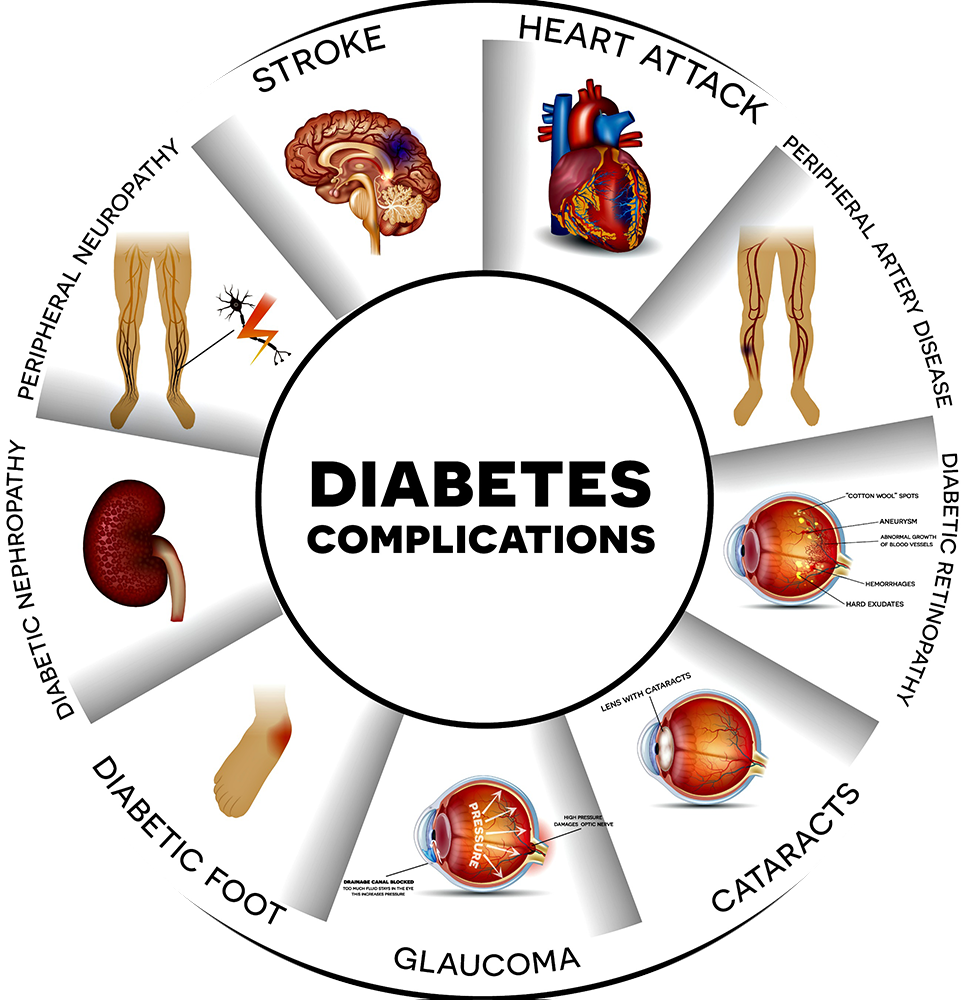Table of Contents[Hide][Show]
In this episode, we explore the theme of World Diabetes Day 2024 and an often overlooked aspect of diabetes management: well-being. You’ll learn how emotional health, support, and practical strategies can help you manage diabetes distress and take positive steps toward improving your overall well-being.
LISTEN TO THE PODCAST
CHAPTERS
1:14 Share diabetes awareness with others
2:00 World Diabetes Day 2024 theme
4:02 Dimensions of well-being
6:06 Understanding diabetes distress
8:08 Overcoming fear of complications
11:32 Building a thrive mindset
13:07 Future pacing to create better health and well-being
18:29 Take care of your well-being each day
Support the podcast by leaving a 5-star rating and review on Apple, Spotify or our Website – Thank You!
Understanding the Emotional Impact of Diabetes
Living with diabetes goes beyond managing blood sugar; it’s also about handling the emotional and mental challenges that come with it.
World Diabetes Day data shows that:
- 36% of people with diabetes experience diabetes distress
- 63% live in constant fear of developing complications
- 28% find it difficult to stay positive
If you resonate with these feelings, know that you are not alone.
One key step to improve your well-being is to recognize that managing diabetes involves more than medications—it requires attention to your emotional health as well.
What Is Well-Being?
Well-being is often thought of as a vague or abstract concept, but it actually involves several essential dimensions.
These include:
- Physical well-being: Achieving good health through nutrition, exercise, and sleep.
- Emotional well-being: Managing stress and emotions in a healthy way.
- Social well-being: Building and maintaining positive relationships and a support network.
- Mental well-being: Engaging in activities that provide a sense of purpose and mental stimulation.
- Economic and environmental well-being: Ensuring financial stability and a safe, supportive living environment.
Each of these dimensions plays a role in how you feel day to day.
One practical step is to assess where you are in each of these areas and identify small changes you can make to improve balance across them.
Addressing Diabetes Distress
One of the most significant emotional challenges people with diabetes face is diabetes distress. This is different from depression; it’s related specifically to the daily pressures of managing the condition, such as constantly thinking about blood sugar, diet, and future complications.
If you’re newly diagnosed, this can be particularly overwhelming.
A key takeaway here is to seek support, such as the Type 2 Diabetes Talk Podcast and becoming a member with DMP.
If you’re newly diagnosed, listen to podcast episodes like Episode 46 and Episode 52, which cover the first steps after diagnosis and how to cope, can be helpful starting points.
Overcoming the Fear of Complications
Fear of complications, like nerve damage or vision loss, is another common source of distress. In fact, 63% of people report being worried about future complications.

The good news is, there are steps you can take to mitigate this risk.
Understanding how complications develop—and what you can do to prevent them—is empowering.
In Episode 30, you can learn how to reduce your risk by managing your blood sugar and keeping your A1c within healthy ranges.
A practical tip is to focus on what you can control. Regularly monitor your blood sugar and work on maintaining a healthy lifestyle.
Knowledge is power, and understanding the science behind diabetes can help alleviate fear.
The Importance of Support and Accurate Information
Lack of support from healthcare providers can also contribute to distress.
Unfortunately, it’s common for people to feel unsupported or to receive inaccurate advice. For example, many people report struggling to control their A1c levels despite following their doctor’s guidance. It’s crucial to ensure that the information you rely on is accurate and effective.
A practical step is to seek out trusted sources of information, such as the Type 2 Diabetes Talk Podcast and becoming a member with DMP.
As shared in the podcast, success stories like Dean’s, who after 20 years of struggling with his A1c levels finally gained control, can provide inspiration and remind you that improvement is always possible.

Future Pacing: Visualizing a Healthier You
Another powerful strategy discussed in this episode of the podcast is future pacing, a mental technique used to visualize your future self in a healthier state. Athletes often use this method to improve performance, and you can use it to stay motivated in managing diabetes.
Here’s how future pacing works
Picture yourself six months or a year from now, having consistently taken small steps toward better health.
Visualize how you’ll feel, how your daily routine will look, and how much more confident you’ll be in managing your condition.
The practice of future pacing can help align your current actions with your future goals, keeping you motivated and focused.
Take Small Steps Toward Better Health
Managing type 2 diabetes or prediabetes is a long-term journey. In fact, for everyone, health itself is a journey, a way of living, not a goal!

There will be ups and downs, but every small step you take toward improving your well-being matters.
Whether it’s focusing on emotional resilience, finding a supportive network, or visualizing your future success, each action brings you closer to better health.
If you’re looking for more support, consider exploring resources like our Memberships or Programs for practical tools and proven strategies that can help you achieve lasting results.
Remember, it’s not about perfection, but about progress!
Key Takeaways
- Diabetes distress is common but can be managed by seeking support and building emotional resilience.
- Fear of complications can be alleviated by understanding how they develop and taking proactive steps to prevent them.
- Support networks and accurate information are critical to managing diabetes effectively.
- Future pacing is a powerful tool that can help you stay motivated by visualizing a healthier version of yourself.
Every small action you take today can contribute to a stronger, healthier you tomorrow.
Prioritize your well-being across all dimensions, and remember, you are not alone on this journey!
Transcript
Click Here To View
Dr Jedha, Host
Hello there, welcome to today’s episode, where we’re focusing on an incredibly important theme for World Diabetes Day 2024: Diabetes and Well-Being.
01:14
Before we dive into that I want to encourage you to share last week’s episode with your family members, friends and colleagues. Last week, episode 50, we covered the risk factors and symptoms of prediabetes and type 2 diabetes. Being the symptoms are vague, they can easily go unnoticed, so we want to make sure our loved ones, friends and colleagues understand what these risks and symptoms are so they can identify anything early and be proactive toward their health. So again, please share episode 50 to help us spread the info and the diabetes awareness.
Now back to today’s agenda…
02:00
World Diabetes Day, it comes around every year on 14th November, bringing global attention to the challenges and advancements in diabetes care, and this year’s theme focuses on diabetes and well-being, a vital yet often overlooked aspect of diabetes management.
You’ll often see a lot about blood sugar and the ways to influence that with diet, exercise, and medications, if necessary. But managing diabetes is not just about blood sugar levels or medications. With all the things that you have to think about, it’s understandable that it impacts emotional and mental health as well, and that’s something we can’t overlook. In fact, according to World Diabetes Day data, 36% of people living with diabetes experience diabetes distress, 63% live with the constant fear of developing diabetes-related complications, and 28% find it hard to stay positive about their condition. So let’s just say that you are not alone in experiencing various difficulties and challenges.
While I will touch briefly on the potential emotional and psychological burdens, I want to primarily focus on sharing strategies and insights on how you might prioritize your well-being, so you can think about how you can take small steps each day to prioritize your own well-being.
Although I consider well-being incredibly important, I’m sometimes uncertain about sharing these kinds of topics, because let’s face it, well-being is a kind of word or concept that can seem a bit vague, abstract or woowoo. In reality however, well-being is a multifaceted concept that encompasses various dimensions of our lives and can reflect the overall quality of our life and our experience of it.
04:02
The main dimensions of well-being are:
- Physical Well-Being: This involves the ability to maintain physical health through proper nutrition, exercise, sleep, and other health-boosting habits.
- Emotional Well-Being: Emotional well-being refers to the ability to handle stress, adapt to change, and manage emotions in a healthy way.
- Social Well-Being: This dimension involves positive relationships with others, social connectedness, and support networks.
- Mental Well-Being: Refers to cognitive functioning, a sense of purpose, and intellectual engagement.
- Economic and Environmental Well-Being: Refers to financial stability and living in a safe, supportive environment.
Overall, for any person, well-being is essentially about trying to achieve balance across these dimensions, contributing to an overall sense of life satisfaction, happiness, and purpose. But when we think about these dimensions, it isn’t always easy to find or keep that balance, right? Daily stressors and life’s unpredictability can tip the scale, making it harder to maintain harmony between these essential aspects of life. That’s why prioritizing well-being is a key part to living not just longer but fuller lives. The one key thing we can do is, each day, even if we can just think about making time for ourselves in some way, our ability to prioritize our well-being grows and gets easier every day.
Coming back to those data stats provided for World Diabetes Day, when it comes to diabetes we’re talking about factors such as distress, fear, and mindset that have a significant impact on your well-being.
06:06
Diabetes distress is a term used in professional practice and in research to refer to multi-faceted things that can affect a person living with diabetes. It’s different from depression or general emotional well-being, as it’s anchored in the day-to-day experience of living with diabetes. A large part of the distress develops from the fact that there are persistent demands, and well, that can be demanding. According to research, females are at higher risk of distress, being more recently diagnosed can lead to higher levels of distress, and lack of support is a big one too.
It makes sense that a new diagnosis leads to distress as it often comes as a shock to many people. And there are so many questions that arise out of that. Back in episode 46 we covered where to start if you’re newly diagnosed and next week we’ve got a Q&A that will help cover some of the most significant concerns that come up for people as well. The other thing that contributes to people’s level of distress actually comes from healthcare professionals – poor communication in consultations and inattention from physicians. People are frequently provided with little to no communication to help them understand their diabetes. If you’ve listened to the podcast for a while, you’ve heard me share people’s experiences of going to the doctors office, receiving a diagnosis and given no help or resources, or worse, being told their diagnosis will lead them to medications, more medications and eventually death. If that’s not distressing to anyone, they must have superpowers. If you are newly diagnosed please listen to episode 46 and 52. Having that understanding and support of knowing what to do is a big one and these episodes will help you feel much better about things.
08:08
There’s also the shaming and stigma that often happens – health professionals passing judgment or criticism in some way, something we covered in episode 40. And many health professionals attempt to use the threat of impending complications, or the need to use insulin, as a means to try and motivate self-care. That doesn’t work. It only increases fear as it doesn’t provide people with knowledge, skills or confidence about what to do to understand what the complications are, how they develop or how to mitigate that risk. According to research, worries about future complications is one of the most common concerns people experience, 63% of people in fact, that’s big. If you are experiencing fear around developing complications, one positive step you can take is to listen to episode 30 to understand how complications develop in the first place. Once you know that, you can take action steps from there, as there is a lot you can do to mitigate risk of complications. And once you understand you can be proactive and reduce risk, this also helps to alleviate any fear you may have, as living in fear is not a helpful emotion, whereas being empowered and positively proactive is. So again, that’s episode 30 where we talked about what causes complications. Getting your blood sugar and A1c within a healthy range and keeping them there is a really important goal here.
As for lack of support leading to distress, that can be common, so I’m glad that you’re here listening to this episode and this podcast, as that provides you with one level of quality support. A way you can grow knowledge about your health, build skills and confidence and that’s all very empowering to feeling positive about things.
It is unfortunate that even when people receive information to manage their diabetes, for example, diet and nutrition information, they receive inaccurate information that doesn’t help them get results. It can be very disheartening when you think you’re doing all the right things but really, the things you’re doing aren’t getting results and you get your A1c and think, why is this not coming down? So it’s not uncommon for people who join us as a member at DMP, to have been living with diabetes for 10 or 20 years and still struggling to get their levels under control. Take Dean for example, who shared his story in episode 31. He lived with diabetes for over 20 years and was struggling to get A1c back to normal and he didn’t want to go on more meds. Well, Dean is now maintaining normal A1c and is off all medication. The thing is, no matter where you are right now, there is always a way to improve your outcomes. But being able to take targeted action that actually achieves a result, that’s motivating and positive. And that’s what this podcast and our membership programs are all about. Use tools that can provide proven support that actually does help you get results, that’s empowering as it improves your health and well-being.
11:32
I also want to note that Dr Doug J Moore was a guest on episode 5 and he shared some really insightful tips on how to switch your mindset to not just survive, but thrive with diabetes, so I’d recommend you listen to that episode. And it’s interesting because a lot of things come back to our mindset. And as Dr Moore said: It’s through repetition and the positive emotion that then we can think differently and feel differently. When we take a conscious step to start to think differently, the neural pathways in our brain do actually change. This is a scientifically proven fact, a concept is known as neuroplasticity, recognizing the brain’s ability to reorganize itself by forming new neural connections throughout life as we learn new skills, form new habits, or change our thought patterns.
13:07
When we get a chance and periodically, it’s important to take time for reflection. Take an opportunity to pause, assess where we are, and envision the person we want to become in the future and how we may enhance our well-being across the different dimensions. As we’ve been chatting about today, while our actions are important, our mindset lays the foundation for how we approach those steps toward our goals and aspirations.
Sometimes, rather than working on the actions, taking a step back to consider our mindset and using mindset strategies to strengthen our decision making and motivation is really important. And, there just so happens to be a strategy called future pacing that we can use to project ourselves forward and create a new version of ourselves, or work toward an even better version of our current self.
Future pacing is a concept rooted in the idea of mentally projecting yourself into the future to experience the outcomes of the changes you’re aiming to make. It’s a powerful visualization tool often used in psychology and coaching that can help us create a vivid picture of our desired future, making our goals feel more real and attainable. By clearly visualizing where we want to be, we can better align our present actions with that future outcome, increasing our motivation, guiding our decision-making and enhancing our commitment to well-being.
While you may be experiencing daily challenges, the practice of future pacing is about seeing beyond those challenges and imagining a life where your health is no longer a constant worry, but a foundation of strength and vitality. It may sound lofty I know, but these mindset practices are rooted in psychological science. Now, I’m not an athlete but I admire athletes in so many ways. And athletes frequently use future pacing and visualization to improve their competition performance and to optimize the outcomes of their daily training and habits.
Science shows us that when we engage in future pacing it helps activate the same neural pathways as when we perform the action or activity itself. Yes, there’s that scientifically proven neuroplasticity again that shows our brain changes with mindset strategies such as future pacing. We can use future pacing to enhance our mental, emotional and physical self, to improve the quality of our actions and optimize our outcomes and daily habits. And we can also use future pacing to visualize potential challenges and how we’ll overcome them.
So what is this future pacing exactly? Well, future pacing means to vividly imagine yourself in the future, say, six months or a year from now. You imagine yourself having consistently taken small steps toward better health, for example. Imagining what that feels like, what your day looks like, the way you’re engaging in activities and the way you’re thinking and feeling about life. Consider all those dimensions in your imagery, not just the physical, but emotional, mental and environmental well-being as well. According to science, when we vividly imagine a positive future, where we’re taking positive actions and having a positive outcome, it does actually help produce a different outcome. Just like the athletes use it to optimize their competition outcomes and the daily training and habits they engage in, we can use this strategy in our everyday lives. It reinforces what we want and does change our mindset.
Another way we can use future pacing is to future-pace ourselves through challenges. It’s important to recognize that facing obstacles is a natural part of any process, and how we respond to challenges can make all the difference in our long-term success. By preparing for obstacles in advance, we can reinforce our ability to stay resilient and committed to our goals, no matter what the journey of life throws at us. Again, athletes use this to play it forward and visualize how they will overcome the challenges they face in competition or in their daily routines.
As you move forward, there will be ups and downs, successes and setbacks. However, each day brings new opportunities to learn, grow, and make choices that support your health, your happiness and your well-being.
18:29
In short, living with diabetes is more than just focusing on blood sugar—it’s about taking care of your overall well-being. That means taking time for yourself to reflect on ways you can strengthen, not only your physical well-being but also your emotional, social, mental and environmental well-being. It’s important to understand as much as you can about your health condition, and even more important to find accurate and trusted information so you know the proactive steps you choose to take will have a positive impact. It’s important to have support, whenever you feel comfortable to seek that. If you’re finding that aspect difficult, visit our website and consider joining us as a member. It’s important to shift your mindset and focus on prioritizing you, even if that means taking teeny tiny steps, everything counts and literally will help rewire your brain to positivity. Listen to those resources I shared today, episodes 46 and 52 if you’re newly diagnosed, episode 30 about how complications develop and episode 5 on mindset. And of course, using mindset strategies such as future pacing, is a powerful way to project ourselves into the future and envision the outcomes of the small, incremental changes we’re making today and rehearsing how we’ll overcome obstacles as well.
If you’re already one of our members, you’ll know that the resources we share each week provide ongoing support, to inspire, to empower you with skills and knowledge and to help you stay in a positive mindset. If you visit the Members Library you can find additional resources alongside each podcast. There was a great workbook we shared alongside episode 5 called Thriving with Diabetes Mindset Matters – lots of great stuff in that. Being able to check in personally each month for feedback or just to share your challenges is another amazing level of support we provide, and gives you a sense of community, reading what others are going through and the challenges they face. If you haven’t been using the monthly check ins, I encourage you to do so, as it really is valuable support. Some members just check in briefly saying hi, some members share their progress or results and some members troubleshoot issues or challenges and get specific feedback on things and then they go away and put them into place to get better results or overcome those obstacles. I just want to ensure that if you are one of our members listening to this, that you are taking full advantage of all the support your membership provides.
To conclude this episode for World Diabetes Day 2024, make sure you prioritize your well-being. Remember though, it’s not about perfection—it’s about progress and being kind to yourself along the way. Every small step you take is a victory, and it’s these consistent efforts that lead to long-lasting positive changes.
Be sure to share episodes 50 and 51 to help us spread this valuable information and diabetes awareness.
Thank you so much for listening today. Until next time.
Dr Jedha, over and out.
Subscribe to Type 2 Diabetes Talk on: Apple | Spotify | Amazon Music | Audible | YouTube | Podcast Index | Player FM | and more…



Margaret Devar
Newly diagnosed
Dr Jedha
Hi Margaret, you’ll find this podcast for newly diagnosed helpful. If you want to get on top of things quickly and get your blood sugar back to normal, consider joining us as a member or taking the T2Diet Program.